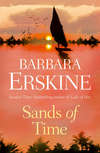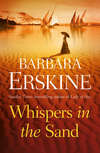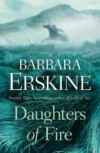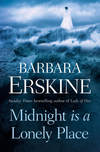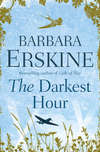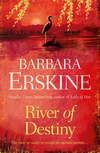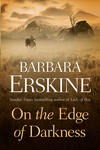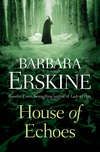Kitabı oku: «The Ghost Tree», sayfa 10
20

Timothy pulled the car under the trees where he had parked before, reached over to the passenger seat for his backpack and the large torch he had bought that afternoon, and let himself out into the cold night.
The air was heavy with moisture, a damp mist hanging low over the garden as he tiptoed across the grass at the side of the driveway. There were no cars parked outside the house and there was no sign of life. Perhaps there was no one at home.
On the face of it, this was a brilliant plan and he had sold it to April easily, but there were one or two snags he hadn’t mentioned, the first and most obvious being that he had not actually looked inside the shed. He didn’t know what sort of condition it was in and he had to find a way of freeing the door from its curtain of ivy and bindweed in such a way that there would be no trace of him afterwards. In his sack there were kitchen scissors and a large knife and some secateurs. He was pretty sure he could hack his way into the shed with those, but what to do to put it all back and restore it to its desolate appearance of never having been touched in fifty years was a problem he would have to solve when he got to it.
As his eyes grew used to the misty darkness he could see thin lines of light around the curtains drawn across the French doors at the back of the house out of which Ruth and Macdermott had appeared last time he had been here. He had no way of knowing Ruth was even still there, but it was she he pictured in the house. He waited for several seconds. The darkness made him feel safe. Even if she opened the doors and came out onto the lawn, she would not see him. He backed away. She wouldn’t be able to see the outbuildings from there anyway, screened as they were by a line of trees and shrubs. She could walk all the way down to the river, as she had done that evening with Macdermott, and she still wouldn’t see him.
The jungle area behind the garage looked even more wild and impenetrable in the cold beam of the torch. He surveyed it carefully. In daylight he had been able to see the shadow of the door behind the ivy. Now it was all black moving shapes and crawling stems. There was a sudden disturbance among the leaves and a blackbird shot out of its roost with a deafening shriek of alarm. He jumped back, his heart thudding with fright. Turning off the torch he waited, expecting to see lights coming from the direction of the house, expecting shouts and police sirens. There was nothing. The darkness fell back into silence.
It was a couple of minutes before he dared turn on the torch again.
The biggest mistake he had made, he realised very quickly, was not to bring gloves. He gave a grim smile. Obviously he wasn’t a seasoned crook or hiding his fingerprints would have been the first thing he thought of. And since he wasn’t a seasoned gardener either, it hadn’t occurred to him that nature would fight back, that the undergrowth would tear at his skin and be full of thorns.
He managed it in the end, freeing the door of everything but cobwebs, the rusty latch hanging off, the padlock that had once secured it dangling uselessly from its hasp. He gritted his teeth and pulled. The door didn’t move. He pulled again, careless of the blood dripping from his fingers and from the deep scratch across the back of his hand. He was sweating from his exertions, the cold seeping into his body now he had stopped, and he was exhausted. When the door resisted, he wanted to sit down and cry. He gripped the edge of the rotten boards once again dragging at it with the last of his strength and reluctantly it began to move. He pulled one more time and with a deafening squeak and groan of rusty hinges it opened. He was past caring if anyone had heard as at last he shone his torch inside.
The shed was a lean-to, mostly empty. In the far corner was an ancient mower, draped in rotting tarpaulin; there were broken rakes and spades leaning against the wall and a pile of ancient flower pots. The ground was beaten earth. He shone the torch upwards and saw the underside of the roof, some of it tiles, some rusty metal, all precariously balanced on split and sagging beams. It looked as if the slightest breath of wind would bring it down.
He bit his lip. It would do as a temporary hiding place but not for long. It was not secure and it was far from weatherproof. If the paintings were left in here for more than a few days they would be destroyed. He cursed again. He should have thought of bringing something waterproof to drape over everything. He shivered. He could not change his mind now. There was no plan B. His only option was to cart the stuff from the car, stack it in here, behind the mower, refasten the door and drape the ivy back into place as best he could. Once he was safely home in the warm and dry he could try and think of somewhere better to hide the stuff. He glanced towards the house. It was all in darkness. They must have gone to bed. He was amazed at the shot of jealousy and disgust that knifed through him at the thought of Ruth and that fat slob together.
Ruth was eating a bowl of breakfast muesli the following morning when there was a knock at the kitchen door. She froze, her spoon halfway to her mouth.
Slipping off the stool, she opened the door to a tall, lanky man with fiery red hair and bright blue eyes. ‘I’m Lachy.’ He held out his hand.
‘Lachy?’ She shook it, bewildered.
‘Did Finlay not mention I’d be coming to tidy the garden?’
He accepted a cup of coffee, and stood leaning on the sink as he sipped from it. ‘Have you heard from Finlay?’
‘No. I was going to text him to see if he had arrived safely.’
‘He’s not very good at keeping in touch when he’s on one of his research trips.’
She laughed. ‘You obviously know him very well.’
‘We go back a long way. I come in from time to time to keep an eye on things here. If I didn’t, Finlay would be lost in the jungle by now. The man doesn’t understand that things grow and when you cut them down they grow again.’ He laughed.
‘Isn’t that odd. You would think as a cook he would have a fantastic kitchen garden. There’s plenty of room here.’
He blew the steam off his coffee and took a sip. ‘Gardening needs to be a passion to keep on top of something like that. He hasn’t the time. And he knows someone who grows wonderful organic veggies for him.’
‘You?’
‘Me.’ He laughed again.
‘And is that your main job?’
‘No, I design software. That’s why I have to get out in the air sometimes. I have my allotment and I have this place to indulge my need of sun and wind and rain. Sun today, so I thought I’d rake up some of the leaves.’
‘And he pays you for all this?’ It was none of her business, but she was intrigued.
‘No. He offered, but I told him he couldn’t afford me! We keep it informal. My wage is the joy of being here. Besides, I like Fin. I bring my kids sometimes to play; they adore him.’
That was a side of Finlay she had never suspected.
Lachlan drained his cup and put it in the sink. ‘I will be on my way out then. If there’s anything you need, give me a shout or call me. Fin’s got my number on his corkboard over there. I’m very happy to come over. And don’t be afraid to explore the garden. It needs to be loved.’
She sat for a long time after he had let himself out. It was strangely reassuring to know there was someone there for her.
She had started building a timeline of Thomas’s life. The night before she had read a copy of the letter he had sent to his brother about his stay in Jamaica and how he had sent a tortoise to his mother. She wondered idly if the creature ever reached England safely and what Lady Buchan had thought about the strange animal destined to wander in her garden.
She picked up her pen. It was a year later. HMS Tartar was sailing north towards Florida on her regular patrol up and down the western seas. The sea was blue, a pod of dolphins leaping and diving under the bow of the ship, the wind steady from the north-west. She had discovered there were actual log books from the ship still in existence and online. The lieutenant had spotted the tell-tale signs of a storm on the horizon. She wondered at what point he would have made sure the captain knew. Was that when they would take in sail and batten down the hatches?
In the garden, Lachlan went on raking the leaves into piles ready to put them on the bonfire. Methodically he worked his way across the lawn, as usual lost in thought. It was a while before he noticed the trail of footprints in the long wet grass. They led from the front drive round the back of the garage and into the undergrowth behind the fir trees. Puzzled, he stared at them for several seconds, then he decided to follow them to see where they went. Leaning his rake against a tree, he ducked into the cold wet shadows.
21

The sea was unnaturally calm. The dolphins that had been escorting them for some time, first on the starboard bow, then to larboard, had disappeared. The sky was growing increasingly black and threatening and what wind there had been had dropped away to nothing. In the distance they could hear the grumble of thunder. The men were uneasy, glancing up at the sky as they worked, taking in the last of the sails. There was no need to urge them to hurry. They all knew what these sudden storms were like. They could see the lightning now, flickering on the horizon, and again the growl of the thunder becoming more distinct. The storm was coming ever closer. A slash of lightning sizzled out of the sky and hit the sea nearby, followed by a much louder crack of thunder. ‘Order your watch below, if you please, Mr Erskine.’ The captain was watching the storm, a frown deepening on his face.
‘Sir.’
Tom had become used to commanding the men now. Much younger than many of them, it was part of his training and when Lieutenant Murray had been promoted to command the sloop HMS Ferret, Thomas had assumed some of his duties. He had stepped forward, ready to give the signal, when a second lightning bolt knifed out of the sky and hit the mizzen mast immediately beside him.
He dropped like a stone.
He wasn’t sure how long he had been unconscious. He came round feeling as though his arm was on fire. As his eyes were flickering open, two men seized him and carried him down from the quarterdeck towards the companionway. ‘Take the injured below.’ The captain’s voice was harsh. ‘Call the purser and the gunner’s wife to attend to them.’
Tom cried out with pain as he was half carried half pushed down into one of the officers’ cabins and dropped unceremoniously on the bunk.
‘My God, sir!’ the seaman who tried to straighten him said in shock. ‘You look like you’ve been hit by a cannonball.’
‘What was it? What happened?’ Tom was delirious with pain.
‘Lightning, sir. It hit you full on.’ The man gently pulled the scorched shreds of Tom’s sleeve away. ‘You’re badly burned, sir.’
‘But I didn’t hear it. I didn’t see it,’ he protested.
‘Well, everyone else did, sir.’ The man stood back as the gunner’s wife bustled in. She had her box of medicines with her. ‘Go and help bring the others down,’ she ordered the seaman. ‘There are at least four more injured. Take them to the sickbay.’
She bent over Tom and examined his arm, noticing the tell-tale flowery pattern of marks and the burns under the skin. ‘This is going to hurt, young sir, but I know you will be brave. I have to rub in spirits to prevent gangrene. After that it is up to God how scarred you are. You have been spared by a miracle.’
Miracle or not, Tom found it hard not to scream as she poured on the spirit from her small blue bottle and dabbed it over the burn. She was putting the stopper back in the bottle when there was an enormous explosion. The whole ship trembled and shook and was enveloped in noise and smoke.
Tom shot up on the bed as the gunner’s wife ran to the door. ‘Sweet Jesus, we’ve been hit again! We’re going to sink!’ she screamed. They could hear the crashes and splintering of wood above deck and smell burning. Forgetting his injuries, Tom followed her up the companionway and stared round at the scene of destruction in horror.
‘The main mast has gone, and the main top and the topgallant!’ a voice called out of the smoke. There is fire below, sir.’
The deck was covered in splintered wood and shredded canvas from the sails. Another flash of lightning hissed down into the sea near them, followed by a deafening crack of thunder. The sea was churning now as though eager to swallow the injured vessel.
The men were pouring up on deck and already the well-practised fire drill was in operation, with men passing buckets of water hand to hand. The captain saw Tom standing, watching. The boy’s face was white, streaked with sweat and soot, his arm hanging useless at his side. ‘Get below, Tom. You can do nothing to help. The ship is safe.’
Safe? How could it be safe? Someone had said they were sinking. Tom gulped as he looked at the devastation around him then he obeyed. He managed to scramble back down the ladder, one-handed, and staggered back to the cabin where he fell on the bed in a fog of delirious pain. In seconds he had lost consciousness again.
At first the sound of knocking was a part of the noises in the cabin, the creaking of damaged wood, the slap of ropes, the shouts of men, the furious crash of the stormy sea. Ruth had been so engrossed she had been aware of nothing beyond Tom’s account of the storm. She looked up at last and saw the figure outside the windows. Seeing he had her attention, Lachy knocked again.
‘Sorry, I was miles away.’ For once that cliché was no more than the truth.
‘I didn’t want to disturb you.’ He stayed outside on the terrace, with a gesture at his wet boots. ‘I just wanted to check, did you put some stuff in the shed behind the outbuildings, or is that Finlay’s?’
‘I’m not sure I knew there was a shed. It certainly wasn’t me.’
‘It must be Finlay then.’ He looked around doubtfully. ‘I’m not certain what to do. It will be spoiled if it’s left there. Perhaps he didn’t realise the roof has gone. He’s covered it up a bit, but that’s not going to keep it dry. What should I do, do you think?’
‘What kind of stuff is it?’
‘Boxes and suitcases. Maybe he planned to take it to a charity shop. I could move it all into the garage. It would stay dry in there.’
‘That sounds like a good idea. Would you mind? I’ll mention it when he gets in touch.’ Automatically she reached for the phone and glanced at its screen. Nothing. ‘He’s still not answering my calls and his voicemail isn’t switched on.’
‘Probably forgotten we exist.’ Lachy didn’t look the least put out by the thought. ‘He’s lost in his world at the moment. Good luck to him.’

Thomas
I recovered from the lightning strike and wrote home to my brother David as soon as I was able, describing the events of that fateful day, making light of my injuries as I knew he would pass on the information to Mama and Papa. Unbeknown to me, David had my letter published in St James’s Chronicle. If they paid him for it, he never passed the money on to me.
Of one strange occurrence I told no one then or since.
I remembered nothing of the strike itself; I neither saw nor felt the flash, though now I think I smelt a strangeness in the air moments before it happened. I did not hear the crack of doom as the thunder clapped, but I presume it was much as the second strike that took out the main mast, the sound so loud and awful and the shudder so great it was as if every cannon on the ship had been fired at once.
As I lay on the first lieutenant’s bunk I was at first aware of nothing but the pain in my arm. People came and went; the gunner’s wife brought a cold towel to press on my forehead and redressed my arm. All was a blur, my eyes unfocused and my head blind with pain. Then Jamie, ever the cheerful soul, looked in to see if I was alive and I opened my eyes and saw for the first time. It was as though some connection had been made in the depths of my brain. Everything around me was bright and fluid with swirling lights and Jamie, above all, was surrounded with a halo of reds and greens and yellow colours. As he talked and laughed, a wild shaky laugh, I saw the lights around his head and shoulders reflect his true feelings, I saw his fear for me, his shock at what had happened to the ship which was the centre of our world, saw he was not telling me everything. I saw that men had been killed or injured far worse than me by the lightning blast and by the flying splinters as the mast disintegrated and by the fire that followed, and I realised I was reading his thoughts. He did not stay long. The whole crew had been mustered on deck to help the poor Tartar limp into Pensacola Bay under a jury rig, and there repairs were made. I was left alone to thank God for my life and to puzzle the strange gift of deep sight that had been opened to me. I wished the sennachie was there to explain to me what had happened to me and failing his presence I wondered when and if we would ever return to Barbados so that I could visit the slave woman who was so brilliant a doctor and who had read the secrets of my soul and could, if I had the chance to ask, no doubt do so again.
22

‘Are you sure you covered your tracks?’ April had subsided onto the nearest chair. She opened and closed her hands on the table and Tim smiled maliciously, guessing how desperately she wanted a cigarette.
‘Of course. Is everything tidy here?’
She glared at him. ‘I’ve even run the vacuum round the room. There’s no trace of anything from Number 26.’
‘So we’re cushty?’ He grinned.
‘Unless the police come about the will.’
She hadn’t spotted the utterly brilliant part of his plan. If ever the shit hit the fan he had only to say that he had rescued the valuables to keep them safe for Ruth. Why else would he have taken them to the place where she was staying? It was April who had forged the other signatures on the will after he had guided Donald’s hand to sign it, April who had found the old will forms in the first place. He had been an innocent bystander who had genuinely liked the old boy and had looked after him. He had had no idea Dunbar had any family; he had thought he was doing him a favour.
‘The police won’t come,’ he said confidently.
‘You don’t know that.’ She gave up the struggle, climbed to her feet, went to the drawer under the draining board and extricated a battered packet of cigarettes. She shook it experimentally, found three inside and ignoring his raised eyebrow turned on a gas burner and bent to light one. She inhaled deeply. ‘I will be sad to move on from here. I like this house.’
He gave a grim smile. ‘Better than Number 26?’
‘Don’t kid yourself we’ll ever live there. If we inherit it, we’ll sell it. Do you know how much houses in that part of town are worth?’
‘Of course I do. You think I didn’t check?’ He waved away her smoke with a look of distaste. ‘Have you thought about where we’ll go next?’ It was a grudging admission that she was the one who made the decisions. He went to the window and pushed it open. A thread of fresh air entered the room, mingled with the waft of the bins outside; anything was better than the smell of her smoke.
‘Maybe London this time.’
‘Won’t we have enough money to retire?’
She pulled a face. ‘Not unless you plan to go to work.’
‘I was working, April,’ he retorted mildly. ‘I worked damn hard.’
She acknowledged the fact with a dubious inclination of the head. ‘I’ll give it some thought.’
He gave up on the fresh air and pulled the window shut. ‘I might go out for a bit.’ He wasn’t good at waiting and that was all there was to do now.
‘Please yourself.’ She was looking forward to her next programme on the telly. If he was out of the house she could enjoy it more, maybe even have another cigarette.
Harriet arrived just before six, and Ruth showed her round the house. ‘Isn’t it lovely? I haven’t actually asked Fin if you can stay – I can’t get hold of him – but I’m sure he wouldn’t mind. Sit down there and I’ll make us a G & T.’
Searching through Finlay’s drinks cupboard she found some gin. She studied her companion for a moment as Harriet hitched herself onto a stool. ‘So, your book is going well so far?’
Harriet nodded. ‘Liz’s grandmother was the most amazing woman. Awesome! I wish I’d met her.’
Ruth poured a hefty slug of gin into each glass. ‘So, how long will you be staying up north?’
‘I should think another couple of weeks.’ Harriet reached for one of the glasses and took a sip of neat gin. ‘You were telling me on the phone that Thomas saw ghosts? Yuk!’ she pushed the glass aside. ‘Haven’t you got any tonic? This is far too strong.’
Ruth gave up on the search for tonic. ‘Let me make us a Negroni. Finlay has all the ingredients.’
She stood stock-still, thinking, as she reached for the bottle of Campari.
‘Ruth? What is it?’
‘I was trying to remember where Thomas mentions ghosts.’
‘You haven’t tried to summon him yet?’
‘No way.’
‘I think you should. In fact,’ Harriet looked up, her whole face suddenly animated, ‘why don’t we both give it a try tonight, while I’m here?’ She took the bottle out of Ruth’s hand and screwed the top back on. ‘That’s it. We’ll hold a séance – a proper séance this time – and get him to come and talk to you.’ She shoved the bottle towards Ruth. ‘Come on. If you’re going to make this concoction, get on with it. After supper we are going to repair to a candlelit room and we are going to ask Lord Erskine to appear and tell us the truth behind all this.’
The captain’s woman had died in childbirth. The whole ship knew and the mood was sombre. Thomas and Jamie had accompanied him ashore when he was summoned by a slave from the estate. The two boys waited nearby as he went into the house to see her. They had been too late.
When Sir John came out hours later he had his little daughter with him. His face was ravaged with grief. ‘I am staying ashore for a while,’ he told them. He handed a letter to Thomas as the little girl clung to the skirts of his coat. ‘Return to the ship, Mr Erskine,’ he said formally, ‘and give this to Mr Barton. He will assume command until I return.’ He stooped and picked up the child. ‘I have to see to my little one.’
They stared after him as he went back into the house. ‘He must have really loved her,’ Jamie said wonderingly. ‘Even though she was a slave.’
Tom nodded doubtfully. Something about Jamie’s words did not seem right to him. Just because a woman was a slave, why should that make a difference to how a man felt about her? He had seen the strange mixture of emotions swirling in the air around the captain’s head and shoulders. Above all there was anger, there was grief, there was love, love for the woman who had gone and love for the little girl with her dark skin and her huge uncomprehending eyes, and there was guilt that he had caused the death of the beautiful woman who had loved and trusted him so unreservedly.
They were so preoccupied they did not at first see the black woman who walked heavily out of the house and down the steps towards them, the burden of her own grief all too evident. As she came closer Tom recognised her. He gave Jamie a push. ‘Go on. I will catch you up. I need to speak to this lady. She is like a doctor on the estate.’
As he approached, she looked up and saw him. ‘So, it is the young man with the yaya. You are better?’ Her face was streaked with tears and she looked exhausted.
‘Thank you, yes. You were trying to save the captain’s lady?’ Tom hesitated. The sight of Sir John completely unmanned by his loss had moved him greatly.
‘The captain’s woman,’ the old woman corrected him. Seeing her for the first time in daylight, he registered that she was old, her face lined, her hair threaded with grey, her hands knotted and rough. ‘It was her time. She was too frail to birth that child.’ She led him over to the shade of some palm trees and looked at him closely. ‘So, you know your destiny now, boy.’
‘My destiny?’
‘That’s right.’
‘I know I can see things now. I was struck by lightning.’ He held out his arm and pulled up his shirt sleeve to show her the burn. She barely glanced at it. ‘I wanted to come and see you. I needed to know what happened to me.’
‘You have special powers, boy, I told you that before and now you know it. You’re greater than your brothers.’
He stared at her. The wizened face was wise with years, the eyes bright and all-seeing. ‘How did you know I had brothers?’ he stammered.
‘I see everything.’ Suddenly her gaze became intense. ‘As you do, now, boy. You can see as well as me now. The great god in the sky, he turned you on with that lightning bolt!’ She gave a weary giggle. ‘Use those powers well, boy. Use them for good. Learn to control them. You must be able to call them to you, and send them away again when you don’t need them. You will be a great man.’ She reached up and pulled him round so he faced the intense afternoon sunlight and she studied his face for several seconds. ‘I see so much in you. I wish you well, boy. Now, you go back to your ship. Your captain won’t come back. You can see that, can’t you.’
He stared at her and he realised it was true. He had seen it in Sir John’s face. It was as if something had been extinguished in the man’s soul. ‘How is it possible to love someone so much?’ he stammered.
She giggled again. ‘One day you’ll find out. You will love someone as much as he did. Now, go, boy. I’m so tired and I want to pray for that girl’s soul and for that of her baby. Your gods and my gods, they are all the same. They got compassion for the innocent ones. In all the misery and the pain, they are there. Don’t you forget that, boy, you with your godly sisters!’
With a last exhausted peal of laughter she gave him a little push and walked away, the slap of her bare feet on the path throwing up dust as she went.
‘What was all that about?’ Jamie had been waiting for him, watching.
‘She’s the woman who cured me when I was ill. She’s some sort of doctor.’
‘A witch doctor?’ Jamie’s eyes rounded.
‘No! Yes!’ Tom screwed up his eyes in the sun. ‘She’s a wise woman. We have those in Scotland. She can see the future.’
She had known he had brothers, and she had known about his sisters. And, he glanced down at the sealed letter in his hand, she knew the captain would not return to the Tartar.
Ücretsiz ön izlemeyi tamamladınız.

